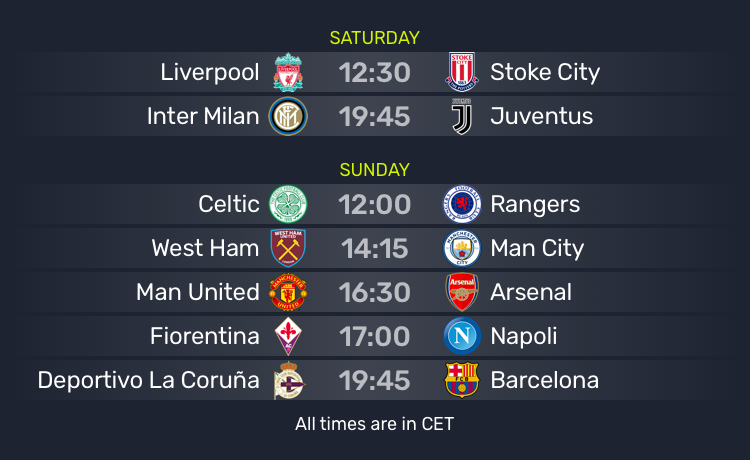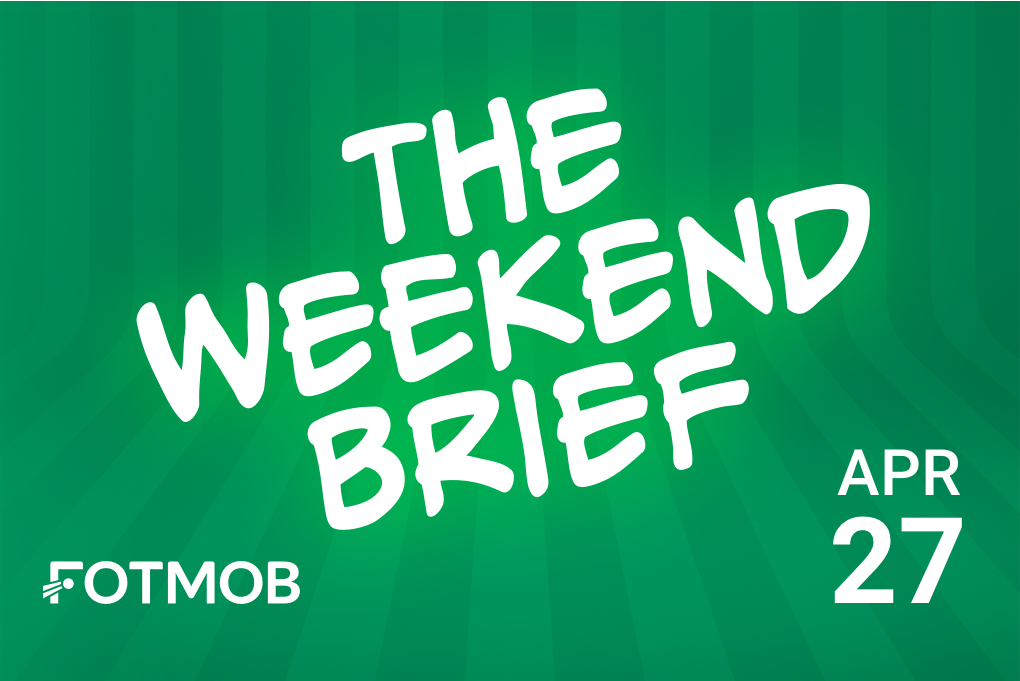
England | Wenger farewell tour visits Old Trafford. Manchester United’s home has been the scene for some of Arsene Wenger’s most memorable moments (the image of him being sent to the stands miming “Where do I go?” is certainly among them). Sunday will be his last visit as Arsenal manager and the first opportunity for Alexis to face his former club.
The EPL could confirm its first relegated club of the season on Saturday, with West Brom going down if they fail to beat Newcastle. At the opposite end of the table, Man City could reach 100 goals if they score two against West Ham on Sunday, becoming the fourth squad to do so in the modern Premier League. More milestones could be reached as Mo Salah’s next goal would set the record for most goals in a 38 game EPL season. Liverpool play Stoke City (who’ve allowed the most goals in the league) on Saturday.
Italy | Derby d’Italia has title implications. Napoli’s 90th minute winner away to Juventus last weekend has made Serie A the league to watch to the finish line. With Juve’s lead down to a single point, their trip to face Inter Milan in the Derby d’Italia on Saturday has new importance. A loss, and they could be down two points to Napoli with a trip to face Roma still to come. Napoli’s run-in is simpler, with their toughest test coming on Sunday away to Fiorentina, who have kept clean sheets in four of their last five home games (but conceded four to Lazio in the fifth).
[interaction id=”5ae2d9f4bb7c0ad023ac49b5″]
Spain | Barcelona could be crowned as champions. Barca need just a draw on Sunday against Deportivo La Coruña to confirm their cup and league double. It would mark their seventh title in ten seasons as they look to complete the first unbeaten season in La Liga history.
Scotland | A potentially historic Old Firm Derby. Celtic could clinch their seventh consecutive Scottish Premiership title at home to eternal rivals Rangers on Sunday. Manager Brendan Rodgers hasn’t lost in 10 meetings with Rangers.
You can get The Weekend Brief with more content in your inbox every Friday. Subscribe here!
